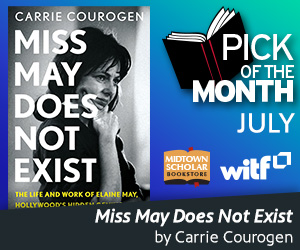
Why 1851 Christiana Resistance in Lancaster County so significant leading up to the Civil War?
Free Blacks fought back against slaveowner
-
Scott LaMar

Airdate: Monday, September 18, 2023
In 1851, a Maryland farmer tried to apprehend two formerly enslaved men who had escaped from his property two years before. That farmer — Edward Gorsuch — probably didn’t anticipate the resistance he would get when he tracked Samuel Thompson and Joshua Kite to William Parker’s rented house near Christiana.
Parker, a Black man who had escaped slavery a few years before, led a group of armed defenders against Gorsuch’s posse and the violence that ensued became national news coming just a year after the nation passed the Fugitive Slave Act.
On The Spark Monday, Darlene Colon, with the Christiana Historical Society described what happened on September 11, 1851,”4 o’clock that morning, Mr. Gorsuch found out that his property, if you will, was in Christiana. He went to Philadelphia to file the proper documentation to allow him to come here. He was discussing the plans with the federal marshal, but unbeknownst to him, there was a gentleman in the room listening who was cleaning up the office, and he was an agent for William Still, and William Still was known as the father of the Underground Railroad. He got a message to William Still of what was going on. And that gentleman was told to get to Christiana and warn them what was coming. So he hopped on the train and was surprised when he looked around and saw the Gorsuch party on the train with him. Luckily, they got off a stop ahead because they wanted to surprise the people. They wanted to sneak up on them. So Mr. Gorsuch decided at 4 a.m. on September 11th, he was going to surprise people who were at that point and barricaded in the William Parker house with William Parker, his wife, her sister, her sister’s husband, and the gentleman that Mr. Gorsuch was looking for. And as I said, it was 4 a.m. I think Mr. Gorsuch kind of forgot that 4 a.m. when they were in farming country these people were going to be up anyway. So as he approached the house, he shouted that he had come for his property. Mr. Parker shouted back, If there is property you want, please go out to the barn. Take what you will. Horses, chickens, cows. That’s property. We are not property. This angered Mr. Gorsuch since he actually stepped inside the doorway of the house. Mr. Parker came downstairs partway down the steps, and Mr. Gorsuch again demanded his property. And Mr. Parker said. Tables and chairs there, sir. You take what you will. And at this point, Mr. Gorsuch, obviously quite angry, started quoting Bible verses to substantiate his view on slavery and did not know that Mr. Parker was known as the preacher. So for every verse that Mr. Gorsuch gave, Mr. Parker countered. So this went on for quite a while, and someone in Mr. Gorsuch’s party got a little antsy and fired off a shot. Just missing Mr. Parker. He retreated back upstairs. His wife, Eliza, went up to the third floor the attic, and started blowing a fish horn, which was the alarm in the valley, that there was trouble, that they needed help. She kept blowing the fish horn. They kept shooting at her. In the meantime, a couple of miles down the road was a flour mill where there was some Quaker gentleman and others. They heard the ruckus, the shouting, the fire danger, the gunfire, the horn. So they came to see what was going on. (The Quaker man) was the first to approach on horseback, and he was met by the federal marshal who tried to deputize him using the Fugitive Slave Act, which stated that you could not refuse to assist in the capture of a runaway. And it was at that point Mr Handley refused. And as he was sitting atop the horse, he looked around and he could see coming through the fields. He could see the rifles and the pitchforks and the corn cutters. They were they were coming for help. And he advised the marshal, I suggest you leave because these people are willing to fight to the death for their freedom. So the marshal skedaddled to the field saying he was going to go get reinforcements. And it was at that point when the dust settled. Sadly, we had one death and that was the slave owner, Mr. Edward Gorsuch.”
William Parker escaped but 35 others were tried in Philadelphia for violating the Fugitive Slave Act, were represented by abolitionist and future Congressman Thaddeus Stevens and were acquitted. Colon’s Third Great-Grandfather was one of them.
Colon said descendants of the Parker and Gorsuch families participated in the 150th anniversary of the Christiana Resistance and pointed out another tie to history,”All the Quaker families that were involved were there, and it was quite a day. They actually took us to the boarding home where their youngest (Gorsuch) son was. He couldn’t come along (that day) and he and his roommate grieved over the loss of Mr. Gorsuch and then were quite angry at the not guilty verdict. And we actually looked at the roster of that school, the boarding school he was at, and we saw the young man’s name, Tom Gorsuch. And then we saw his roommate and we saw that name, which was John Wilkes Booth.” Booth, of course, went on to kill President Abraham Lincoln in 1865.
.

